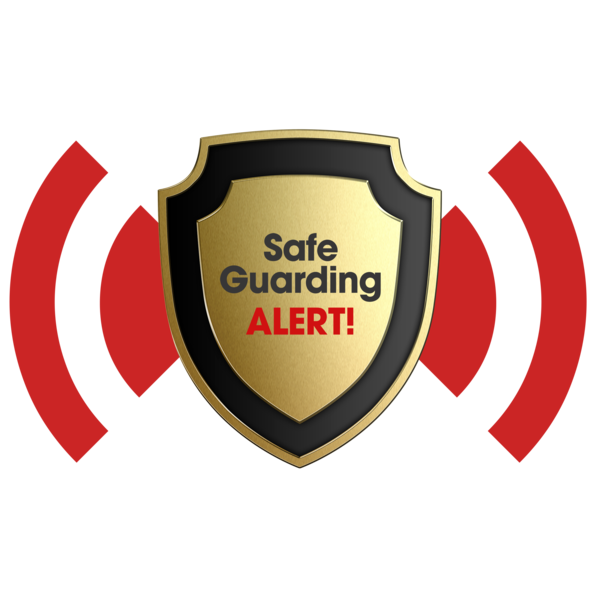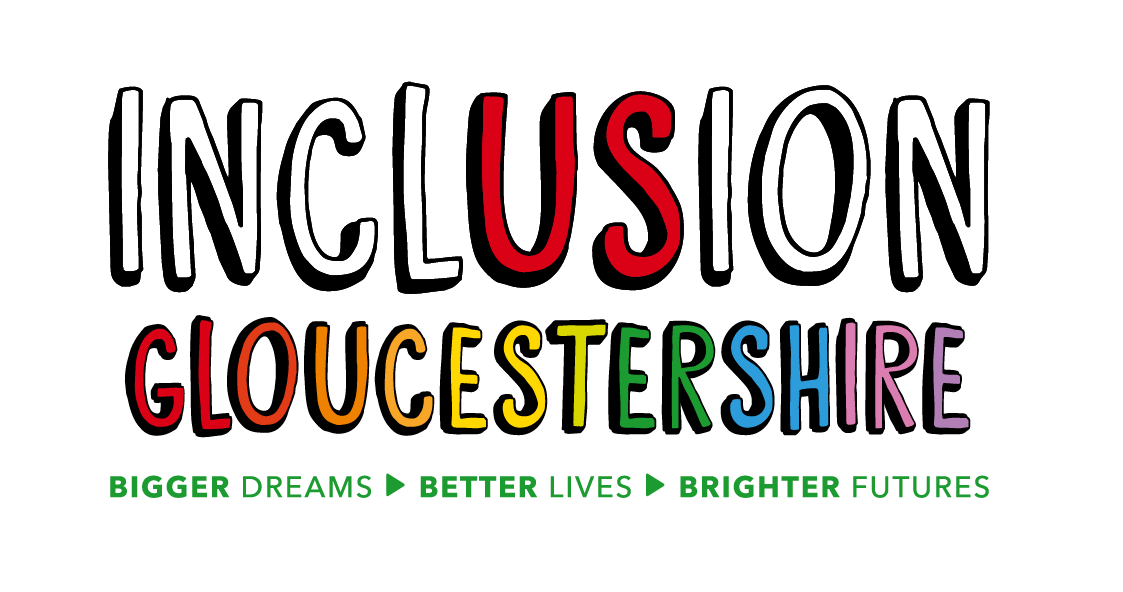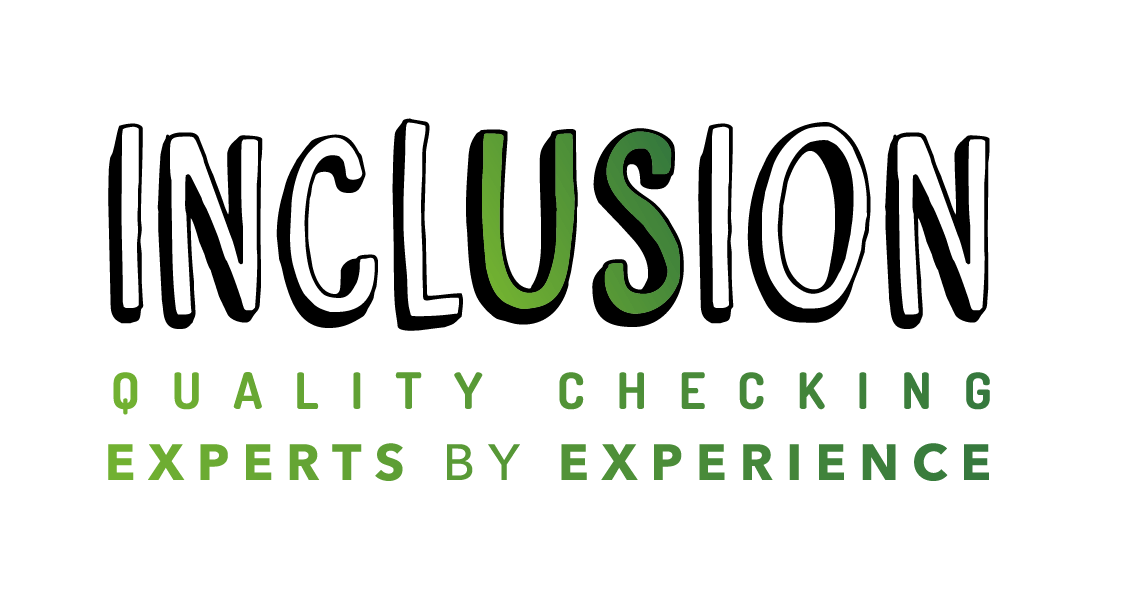
What is Quality Checking?
We provide a peer-led quality checking service in health and social care services for people with disabilities and or mental ill-health. We meet people in the places where they are supported – this is often where people live, in flats, houses, supported living, residential homes, or where they attend or use day services or opportunities.
We want the people we meet who live in or receive services to feel in control of the quality check and at the heart of it. We’re really interested in finding out about their lives, and what’s important to them. We will be led by them so they can take part as much or as little as they want. We ask people a range of questions, which have been developed by people who have lived experience.
We also talk to staff and managers during our quality checks. We produce reports which highlight what the service is doing well, and which identify any areas where the service needs to make improvements. We measure quality based on best practice research evidence, policy guidance, legislative frameworks, and contractual obligations.
Our quality checkers are people who have lived experience of a disability or mental ill-health. We are experts by experience. We have used services ourselves and know what it is like to go through the system. We know what works and what doesn’t. We know that it is vital to give people with disabilities a voice.
As people who have lived experience, we can make sure that our quality checks ask the right questions. We find out what matters to people, and to the people who support them, we highlight what the service does well, and what the service can improve.
Our coordinators have backgrounds in a range of social care roles, and education. Coordinators work alongside expert by experience, coordinating the quality checks, providing support as and when needed and producing the final reports.
Inclusion is at the heart of our work. This means that the conversation or interaction between the person using the service and our expert by experience is at the centre of the quality check.
We are passionate about what we do, and we want our quality checks to make a real difference to people who use services and to the people who are responsible for delivering that service. We place a strong value on working together with organisations who deliver services as we believe that we all have the same aim – to make people’s lives as good and as enriching as possible. We see so much good practice and it is a real joy to highlight this in our reports and share with others.
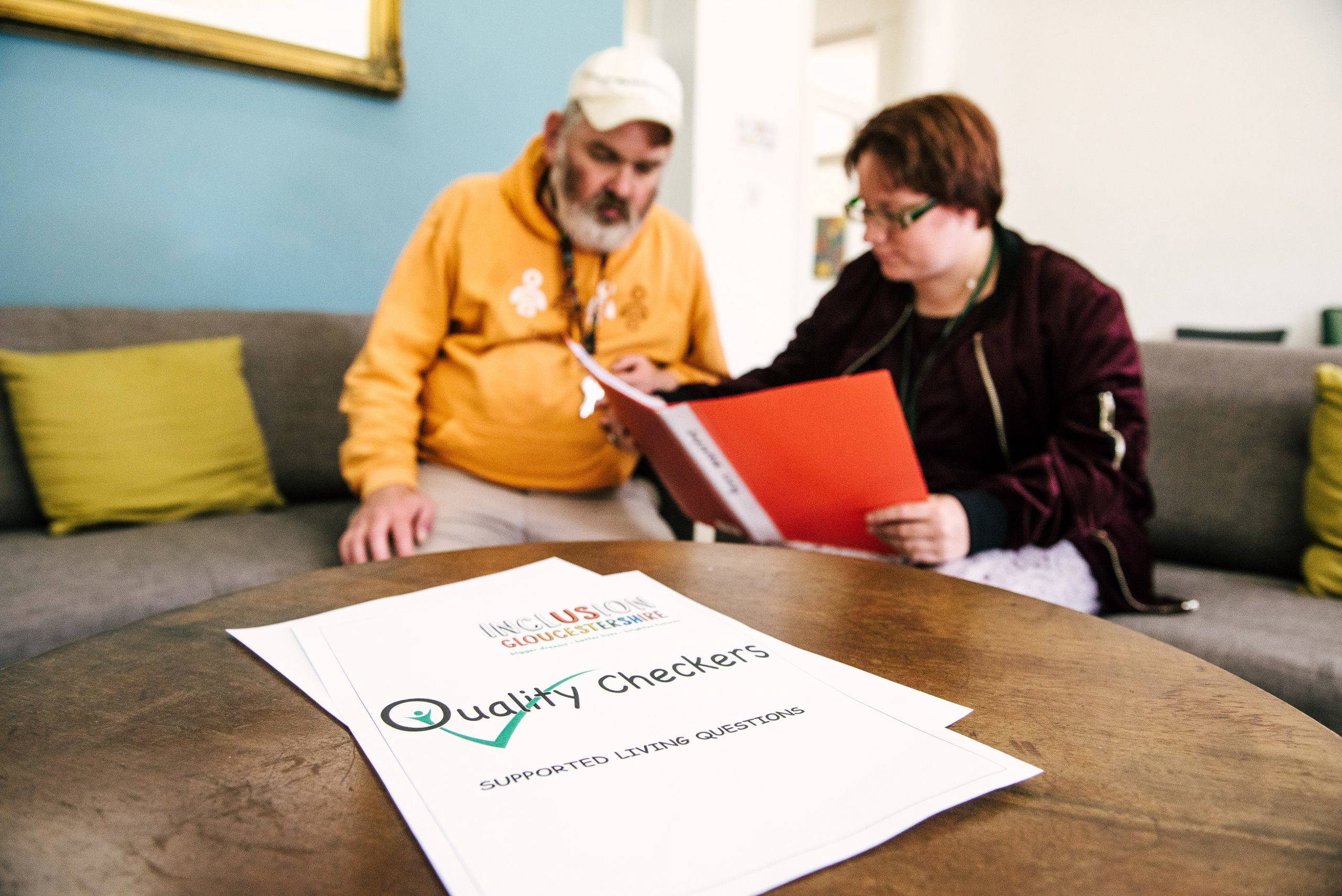
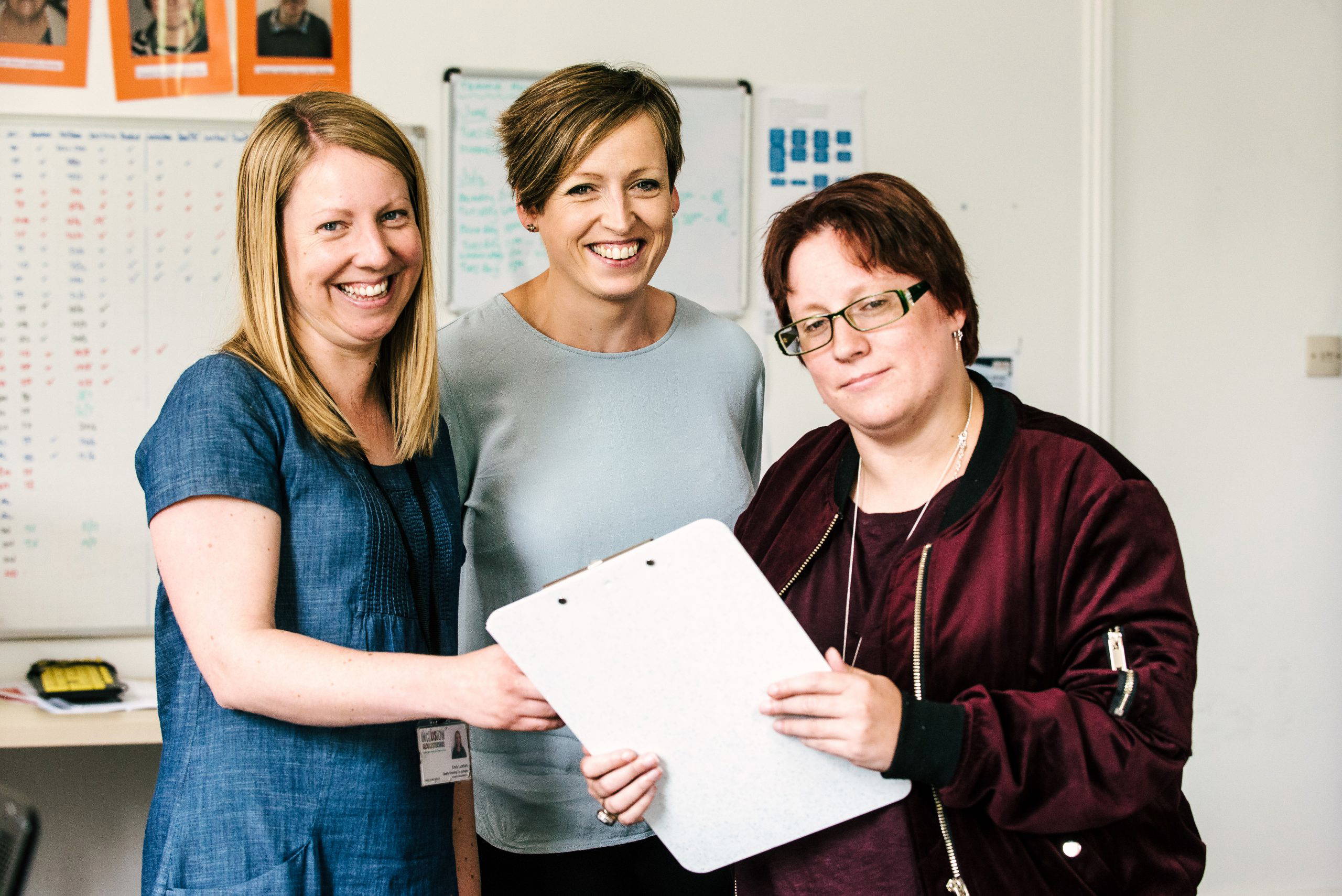
Our Quality Checking Leaflet (.PDF download)
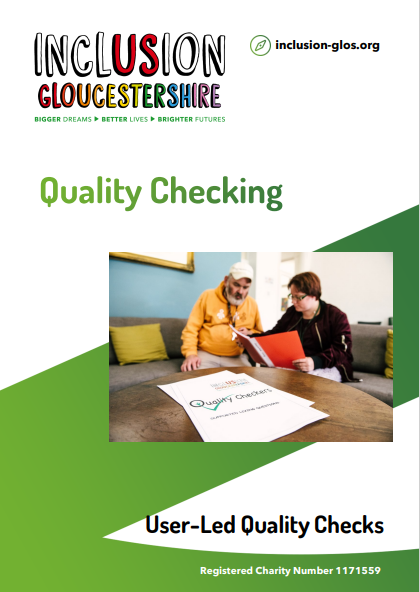
Book a Quality Check
If you are an organisation who is currently delivering support to people with disabilities, mental ill health or other groups, we can work with you to help you identify what your service is doing well, and what changes you could make. We will work with you and to help you achieve quality outcomes for the people you support.
To find out more or to book a quality check email your query to qc@inclusion-glos.org.

Reporting Concerns
How to report a quality issue to Gloucestershire County Council
Quality Helpline Phone Number: 01452 328463
E-mail: disabilityquality@gloucestershire.gov.uk
For anyone (such as Professionals, Service Users, Family, Friends, Advocates, etc) to contact regarding all quality issues relating to learning disability, mental health and physical disability services for children and adults.
The Disability Quality Assurance Team webpage:
How to report a safeguarding concern
If you think someone else is being abused, you must tell someone:
Call the Police by phoning 101. In an emergency telephone 999.
Otherwise you can contact the Adult Help Desk.
Telephone 01452 426868 (8am to 5pm Monday to Friday)
Or when out of hours call the Emergency Duty Team on 01452 614194
You can also email: socialcare.enq@gloucestershire.gov.uk
Or visit the Health and Social Care website for Gloucestershire below
